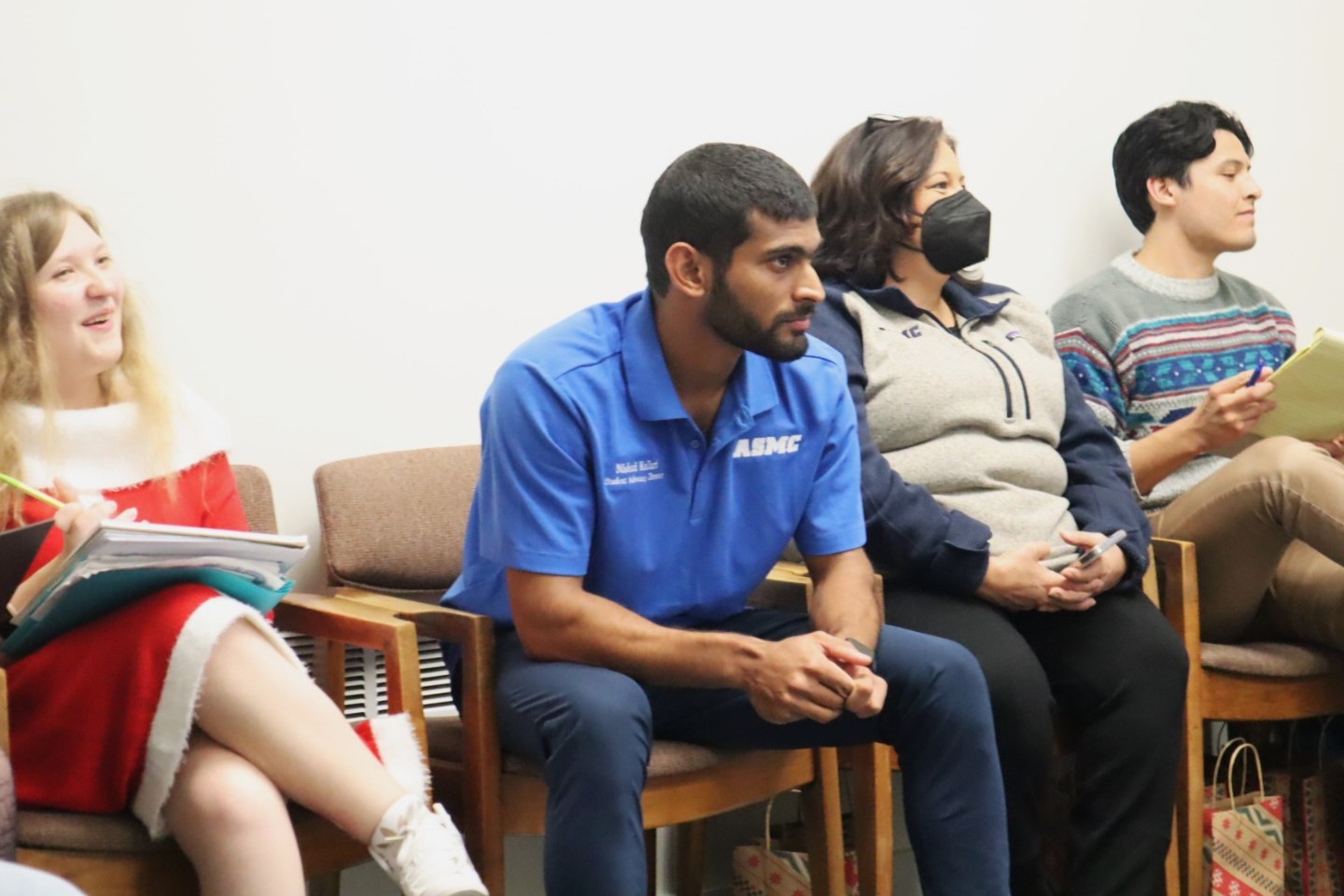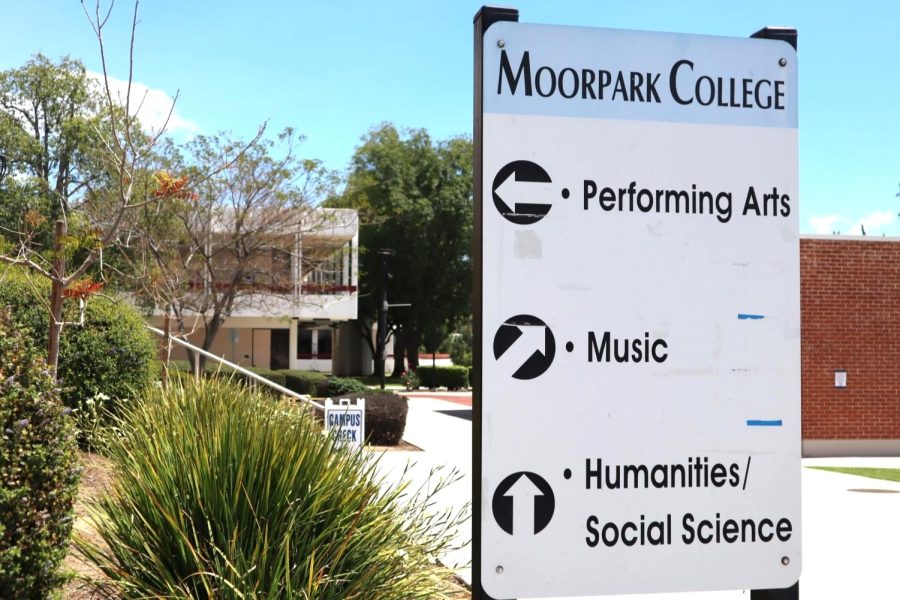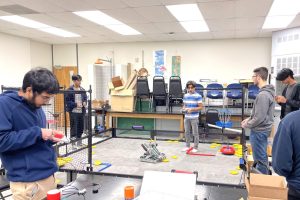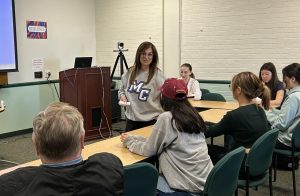ASMC signs its first-ever campus sustainability resolutions
A sign points students and visitors towards different campus departments at Moorpark College. Photo credit: Shahbano Raza
December 8, 2022
The Associated Students of Moorpark College held a signing ceremony to mark the passing of the student body’s first-ever sustainability resolutions. The signing ceremony itself was also a first for ASMC.
The ceremony took place in the ASMC conference room during one of the board’s regular weekly meetings on Monday, Dec. 5.
The two resolutions that were signed–2022.03 Sustainable Landscape Resolution and 2022.04 Reusable or Compostable Foodware Resolution–passed unanimously on Nov. 7.
ASMC has been doing resolutions since 2020-2021. Previous resolutions centered on supporting racial and ethnic minorities and addressing the implications of the COVID-19 pandemic. Monday was the first time the student government has signed a resolution pertaining to sustainability.
Multiple board members mentioned that another unprecedented decision was made in having an actual signing ceremony to mark the passing of the board’s resolutions. ASMC President Karina Arteaga went on to call these resolutions the first step for student government in their mission to enact positive change.
While resolutions typically don’t have an immediate effect on the student population, Arteaga said that they will guide ASMC’s and the college administration’s decision-making down the line.
Arteaga outlined what takes place after the mandatory signatures are obtained for the resolutions.
“For immediate next steps, as soon as we get all the signatures, they’re going to be sent out to administrators,” Arteaga explained. “[The administrators] will now have in mind that this is something that we are passionate about and something that the board backs up.”
The Reusable or Compostable Foodware Resolution advocates for the replacement of single-waste plastics with reusable or compostable alternatives. The resolution further pledges that ASMC will make every effort to use these environmentally-friendly alternatives for their activities and events.
While the Reusable or Compostable Foodware Resolution focuses primarily on ASMC’s sustainability promises to the student body, the Sustainable Landscaping Resolution calls upon the college administration to progress campus sustainability initiatives.
To corroborate the resolution’s call-to-action, ASMC incorporated input from the student body, gathered through a campus survey.
According to the results of ASMC’s survey, “53% of the Associated Student Body members surveyed are strongly in favor of replacing campus lawns with drought-tolerant landscaping, while 37% of the Associated Student Body members surveyed are partially in favor of replacing campus lawns with drought-tolerant landscaping.”
Arteaga coordinated meetings with the college’s facilities, maintenance and operations department to give the board an understanding of what the college was already doing for sustainable landscaping and what more could be done. However, Arteaga credits ASMC Director of Student Advocacy Nishad Kalluri as the driving force behind both sustainability resolutions.

Kalluri, who is also the school’s official delegate for the Student Senate of California Community Colleges, authored both resolutions.
“I was never a sustainability guy, but I just felt like I wanted to do something,” Kalluri said. “And the only thing I can do are small things like this, which are under our control.”
While Kalluri has advocated for replacing single-waste plastics–a push outlined in the Reusable or Compostable Foodware Resolution—his focus has largely been on sustainable landscaping.
Kalluri criticized the campus for its overuse of sprinklers during the state’s mega-drought. He added that the lush green lawns themselves were also unnecessary.
“Sustainable landscaping is drought tolerant landscaping, and most of the landscaping here, no one uses it,” Kalluri said.
Kalluri mentioned that the campus environmental committee has given ASMC the greenlight to work on making the outer perimeter of the campus more sustainable. Kalluri hopes that ASMC will be able to expand sustainability efforts inside the campus.
Monday’s signing ceremony took up a relatively small segment of AMSC’s weekly meeting, which went over a host of items concerning campus activities, the board’s budget, student welfare and student government reform.
The meeting was the last ASMC meeting of the year as the semester comes to an official end on Dec. 15.
ASMC will resume its meetings and activities after the spring semester commences on Jan. 6.









